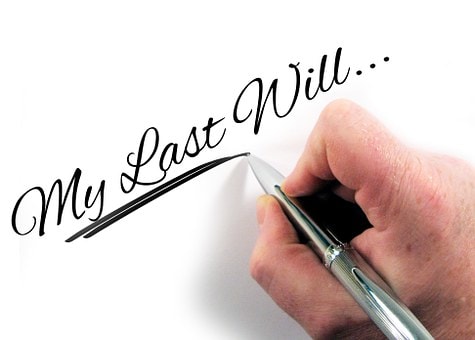This is Why You Need to Do Your Due Diligence!

I had just moved to Miami for grad school and I needed a place to live. Not knowing the area that well, I came down a couple months before school with my Dad and my sister to find a place. We did our due diligence by looking at places in close proximity, reasonably priced for my budget, in a safe area, and with good amenities.
I ended up finding a pretty good pad. It fulfilled all my criteria – it was decent enough, in a pretty good area, within a few minutes of ‘the U’ and the price was right.
One thing I forgot to mention was that I would have a roommate, which was ok at that stage of my life due to my financial constraints and the fact that I wasn’t home that much. My new roommate was another UM grad student, let’s just call him ‘Douchebag’ or better yet, ‘D-Bag’ for short. Well, ‘D-Bag’ seemed fine at first. However, I soon noticed that he kept odd hours. He would sleep most of the day, wake up in the late afternoon, go to class at night, then stay up all night studying – or whatever else he was doing.
That also meant that ‘D-Bag’ would be eating dinner in the middle of the night. The problem is, that also meant he would be cooking in the middle of the night. The reason it was a problem was that he would cook the stinkiest food ever! And unfortunately for me, said stinky food would wake me up and keep me up, which sucked, especially when I had an 8 am class the next day.
Yup, I should have also done my due diligence on my roommate before moving in.
I asked him nicely if he could stop cooking his stinky smelling food in the middle of the night and he said he would try. Well, either you do, or you don’t, there is no try when it comes to that sort of thing.
We will come back to how this story ended later in the post…
Which brings us to the topic of today’s blog post, doing your due diligence!
The Concept of Due Diligence Originated
When it was first used in the Securities Act of 1933. The idea was that securities brokers could use it as a defense against lawsuits from investors they were advising. As long as the securities broker did their ‘due diligence’ or research into the company whose stock they were selling, and told the investors what they found, they could not be held liable if the investment went bad.
What is Due Diligence?
According to Investopedia, “The term “due diligence” is used in many ways and has vague interpretations for many. Due diligence in its basic form is based on a certain standard of care or level of prudence. It can involve the evaluation of a person, a group or a specific act or set of events. It is considered an open format for the party or parties under evaluation, meaning that any segment of the business is open season for review and unfettered access must be granted. Businesses themselves conduct frequent internal evaluations as part of the normal operating procedure usually called internal audit or internal operating business review.” 1
A Famous Example of Due Diligence in Business Is…
The whole unfortunate Bernie Madoff ordeal. I’m sure you remember the whole Ponzi scheme he used to bilk an estimated $50 million from investors over a 20-year period. Those who failed to do their due diligence, in that case, ran the gamut from the Securities & Exchange Commission (SEC) to individual investors, to third parties who gave advice.

For Our Personal Development Purposes…
Let’s simply define due diligence as doing your homework so that you avoid an adverse outcome in the future. The idea is to do your due diligence to protect yourself so that something or someone does not come back to bite you in the ass later on.
Due Diligence in Your Personal Life
There are many ways that you can apply the concept of due diligence to your personal life. Some examples are:
Dating – This applies to both short-term and long-term relationships.
Short-term – Is it safe to even go out with this person? Are there any obvious red flags?
Long-term – If you are thinking of getting into a serious long-term relationship with someone, there are a few questions you may want to ask yourself. Can you trust the person? Do you have similar interests? Do you share a similar mindset? Is there mutual respect? What are their thoughts on kids and retirement? How do you get along with their family and friends? Are you sexually compatible?

Buying stuff – You will want to do your due diligence before making a purchase. Especially a major one like a house where you will want to consider taxes, schools in the area if you have kids, neighbors, the structure of the house (hiring an inspector is always a good idea), etc.
Accepting Jobs – Before you accept a job it is a good idea to do some due diligence on the culture, the company history, your boss and his/her management style, the benefits, the financial stability of the company, and work-life balance, to name just a few.
Making investments – This includes investments of not only a financial nature, but also time, and relationships.
Hiring someone to do stuff around your house such as a carpenter, electrician, handyman or plumber. And ALWAYS beware of plumber’s crack!
Your living will – Doing due diligence on your living will to make sure it incorporates the specifics is also very important.

Eating – Is there hidden salt or sugar in what you are eating? Could there be health risks? Do you have food allergies? In this case, then doing due diligence on the food you eat literally has life or death consequences.
Negotiation – Prior to entering into negotiations for something such as buying a car you will want to do due diligence to understand competitor prices, dealer cost, financing rates, and resale values. Or if you are negotiating a salary, knowing the market rate as well as what the company typically pays is important.
Use it or Lose It – Some Tips for Conducting Due Diligence
Some ways you may want to practice due diligence (depending on what you are doing due diligence for) are as follows:
 Go online to do research i.e. Consumer Reports
Go online to do research i.e. Consumer Reports
 Comparison shop
Comparison shop
 Speak to people
Speak to people
 Understand features
Understand features
 Look at social media
Look at social media
 Get references
Get references
When to Use It:
 When you are going to commit to someone or something and want to prevent a future adverse outcome.
When you are going to commit to someone or something and want to prevent a future adverse outcome.
What Do You Think?
 Do you have any examples where you used due diligence to prevent an adverse outcome in your life? Do you have any examples where in hindsight you wish you would have done your due diligence?
Do you have any examples where you used due diligence to prevent an adverse outcome in your life? Do you have any examples where in hindsight you wish you would have done your due diligence?
Back to My Roommate Story…
It ended up that ‘D-Bag’ didn’t try hard enough to stop cooking his stinky food in the middle of the night. He kept doing it despite my polite attempts to get him to stop.
After the 3rd time it was clear that ‘D-Bag’ was not respecting my need for sleep, so the time had come for me to not respect his need for sleep. So I took immediate action to make it stop.
Long story short, he ended up moving out the very next day.
You see, ‘D-Bag’ should have done his due diligence on his new roommate before moving in as well.
He would have learned that the smell of stinky food in the middle of the night triggered a need for his roommate to put his stereo outside ‘D-Bag’s’ room at 6:30 am and cranking it full blast so that the windows rattled and woke ‘D-Bag’ up.

You should have done your due diligence ‘D-Bag’, you should have done your due diligence…
Until next time, keep doing your due diligence, don’t be a ‘D-Bag’, and as always…PYMFP!
–Rick
If you enjoyed this post, it would mean the world to us if you shared it with people you care about via any of the social media platforms below!
Popular Previous Posts:
This is One of My Favorite Decision Making Techniques
Unless You are an Elephant, This Will Help You!
This is a Word You Need to Be Saying More Often!
How to Use Managing Up to Improve Your Relationships
This is How to Rise Above the Sunk Cost Fallacy
Productive Things to Do When Bored: Your A to Z Guide
This is Why Ron Jeremy Will Make You Wary of Misleading Statistics
References
https://en.wikipedia.org/wiki/Due_diligence
https://www.nytimes.com/2006/11/28/health/28brody.html
https://www.pauladavislaack.com/due-diligence-before-saying-i-do/
https://www.nationalpawnbrokers.org/2014/due-diligence-making-it-a-way-of-life/
http://www.thenonprofittimes.com/news-articles/what-due-diligence-really-means-or-not/
1 https://www.investopedia.com/articles/fundamental-analysis/09/investing-due-diligence.asp


There are day people and then there are night people. You, a day person, while D-Bag falls into the category of night dweller. The two opposites, by definition, become totally incompatible (think oil and water). One positive aspect – no fighting over bathroom times (think Big Bang Theory). You were just lucky that noise cancelling head phones had not yet hit the market, or else D-Bag might still inhabit a bedroom. Did you accomplish due diligence on D-Bag’s replacement, preferable with a Cute Young Thing? Of course, just being a CYT overcomes many negative factors.
Interesting that you included jobs in this essay. The guy who lives across the street had been unemployed for about 6 months – a couple of weeks ago finally landed a job in his preferred field, food processing management and distribution. He apparently stopped his due diligence process with the fact that he would be driving a “reverse commute” – opposite the clogged traffic flow both morning and evening, So yesterday, I found out he gave his two weeks notice. Said the corporate directives, rules and regulations, company processes, manpower utilization, etc. totally sucked rocks. So for him, its back to the want ads and computer web sites offering jobs.
As I type this, my wife (herself a CYT) prepares a list of today’s errands, and in what sequence to accomplish them. She’s using PYP without even realizing it. Must be something about these Jersey Girls.
Good point on the noise canceling headphones, lol! As for his replacement, I had the whole place for the next 2 months, the next roommate was fine. 100% agree on the CYT overcoming negative factors – love it. Re: your wife’s errand list, that’s awesome and I suppose some CYTs just have it in them! Cheers, Rick